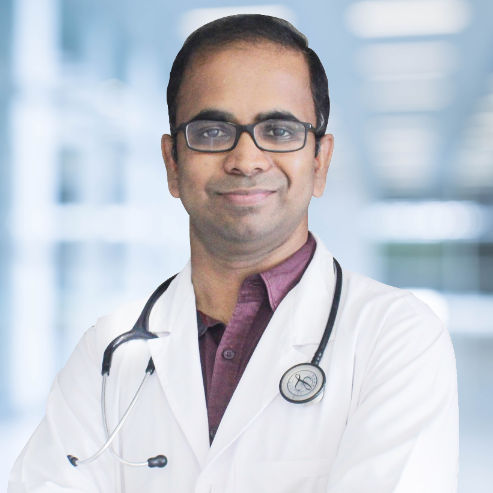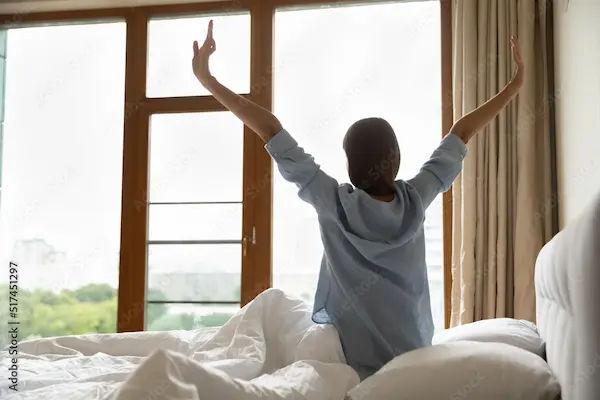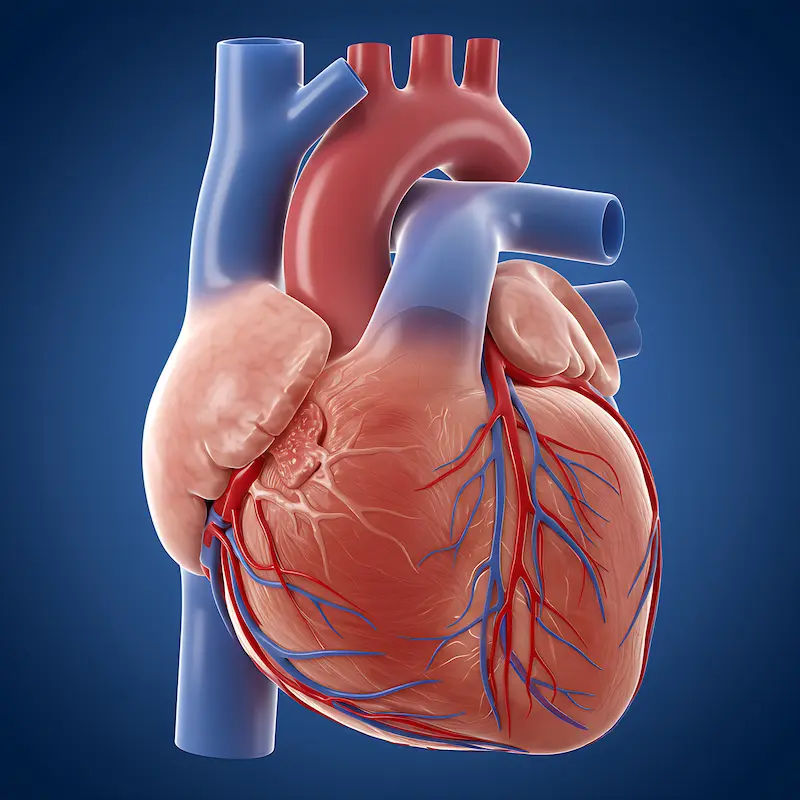Effective Home Remedies to Heal Anal Fissure Naturally
Safe, science-backed fissure remedies and anal care tips to ease pain, soften stools, and heal anal fissures at home, plus when to see a doctor.

Written by Dr. Siri Nallapu
Reviewed by Dr. Dhankecha Mayank Dineshbhai MBBS
Last updated on 13th Jan, 2026

Introduction
Anal fissures are small tears in the thin, delicate lining of the anus. They’re common, painful, and often come with bright red bleeding during bowel movements. The good news: most heal with simple self-care. If you’re looking for trustworthy fissure remedies and practical anal care tips, this guide shares safe, science-backed steps you can start today, plus signs that mean it’s time to see a clinician.
What is an anal fissure?
An anal fissure is a small cut in the tissue that lines the anus. It often happens after passing a large or hard stool or during bouts of constipation or diarrhea. Typical symptoms include:
- Sharp pain during bowel movements (and sometimes lingering afterward)
- Bright red blood on toilet paper or the surface of the stool
- A small visible tear near the anus
- Muscle spasm or tightness of the anal sphincter
Common causes and risk factors
- Constipation and straining
- Hard stools or prolonged sitting on the toilet
- Chronic diarrhea
- Childbirth (postpartum fissures are common)
- Anal intercourse
- Inflammatory conditions (less common), such as Crohn’s disease
Consult a Top General Physician
When to get medical care urgently?
- Fever, drainage of pus, severe pain, or swelling (possible infection)
- Heavy or ongoing bleeding
- Fissure lasting more than 6–8 weeks despite home care
- More than one fissure, or a fissure not in the midline (front or back) of the anus
- You have a condition that affects healing (e.g., inflammatory bowel disease, immune suppression, HIV)
Best fissure remedies you can start today
These conservative steps are recommended by major medical centers and help most people heal within a few weeks.
Soothe pain and relax the muscle: Warm sitz baths
- What to do: Sit in warm water (not hot), deep enough to cover the buttocks and anus, for 10–20 minutes. Do this 2–3 times daily and especially after bowel movements.\
- Why it helps: Warmth relaxes the anal sphincter and increases blood flow, which can ease pain and support healing.
Keep stools soft and easy to pass
- Eat more fiber: Aim for about 25–35 grams per day from foods like oats, beans, lentils, fruits (especially pears, berries, prunes), vegetables, nuts, and seeds.
- Consider a fiber supplement: Psyllium husk or methylcellulose can help if diet alone isn’t enough. Increase slowly to limit gas and bloating.
- Drink enough fluids: Most adults do well with about 6–8 cups (1.5–2 liters) of water per day, unless your clinician has told you to limit fluids.
- Use an osmotic laxative if needed: Polyethylene glycol (PEG) can soften stools by drawing water into the bowel. Follow label directions and ask your pharmacist or clinician if you’re unsure.
Gentle anal care and hygiene (anal care that protects skin)
- Clean gently: After bowel movements, rinse with lukewarm water or use alcohol-free, fragrance-free wipes. Pat dry, avoid vigorous wiping.
- Use a barrier ointment: A thin layer of petroleum jelly or zinc oxide can protect irritated skin and reduce friction.
- Try a touch of lubricant before a bowel movement: A small amount of petroleum jelly at the anal opening may help stools pass more comfortably.
- Avoid irritants: Skip perfumed soaps, deodorant sprays, and astringents on the area.
Healthy bathroom habits that prevent straining
- Don’t delay the urge: Go when you feel the need. Holding stool makes it harder and larger.
- Change your posture: Place your feet on a small stool so your knees are higher than your hips.
- This straightens the rectal canal and can reduce straining.
- Limit time on the toilet: Aim for no more than 5 minutes. Scrolling on your phone can prolong sitting and pressure.
- Stay active: Gentle daily movement (walking, stretching) can improve regularity.
Smart pain relief
- Oral pain relievers: Acetaminophen or an NSAID (such as ibuprofen) can help short term. Use as directed and consider your personal risk factors.
- Short-term topical anesthetic: Products containing lidocaine or pramoxine can numb the area temporarily. Use sparingly and according to the label. Stop if irritation occurs.
What to avoid while healing?
- Straining or holding your breath during bowel movements
- Overusing stimulant laxatives (unless advised); they can cause cramping
- Harsh or scented wipes and soaps
- Steroid creams without medical guidance (overuse may slow healing)
- Anal intercourse until fully healed
- Sitting for long periods on hard surfaces; use a cushioned seat if needed
A simple 7-day plan to kickstart healing
Day 1–2
- Begin sitz baths 2–3 times daily.
- Start a fiber plan: add a high-fiber breakfast (e.g., oatmeal + berries + ground flax) and one fiber-rich snack (e.g., an apple or a handful of nuts).
- Drink a glass of water with each meal and snack.
- Use a barrier ointment after cleaning the area.
Day 3–4
- Add a fiber supplement (psyllium or methylcellulose) if stools are still hard. Increase dose gradually.
- Use a footstool during bowel movements and limit toilet time to 5 minutes.
- Take a short walk daily (10–20 minutes).
Day 5–7
- Keep sitz baths going.
- If constipation persists, consider an osmotic laxative like polyethylene glycol for a few days.
- Evaluate progress: less pain, easier stools, and reduced bleeding are good signs. Continue the routine for at least 2 weeks after symptoms improve to lower the chance of recurrence.
When home care isn’t enough?
If symptoms persist beyond 2–3 weeks or pain/bleeding is significant, see a clinician. Medical options include:
- Prescription topical vasodilators: Nitroglycerin ointment or calcium channel blocker creams (diltiazem or nifedipine) can relax the sphincter and improve blood flow to help healing. Note:
- Nitroglycerin commonly causes headaches and can lower blood pressure, do not combine with medications for erectile dysfunction.
- Botulinum toxin injection: Relaxes the anal sphincter to promote healing, typically used when topical therapies fail.
- Surgery (lateral internal sphincterotomy): A highly effective option for chronic fissures that do not respond to other measures. A colorectal surgeon can discuss benefits and risks.
Special situations
- Pregnancy and postpartum: Constipation is common. Emphasize dietary fiber, fluids, and gentle activity. Many topical medicines and laxatives are safe, but confirm with your obstetric provider before starting new products.
- Children: Similar principles apply, fiber, fluids, sitz baths, and gentle hygiene. Consult a pediatric clinician for dosing of any medicines and for persistent symptoms.
- Recurrent fissures: Review your daily fiber/fluid intake, toilet habits, and any patterns of constipation or diarrhea. Persistent or recurrent fissures may benefit from evaluation for underlying issues (e.g., pelvic floor dysfunction, inflammatory bowel disease).
How long does healing take?
- Many acute fissures heal within 2–6 weeks with consistent self-care.
- Chronic fissures (lasting more than 6–8 weeks) often need prescription treatments or procedures.
Fissure remedies vs. other anal conditions
Hemorrhoids and fissures can both cause pain and bleeding, but they’re different problems. Hemorrhoids are swollen veins; fissures are tears. Some products marketed for hemorrhoids (like vasoconstrictors or steroids) may not help fissures and can irritate if overused. If you’re unsure which you have, or your symptoms are severe, get medical advice.
Putting it all together
Most people improve with a few steady habits: warm sitz baths, a fiber-rich diet, enough fluids, smart toilet posture, and gentle anal care. These evidence-based fissure remedies, combined with prompt attention to constipation or diarrhea, give your body the best chance to heal. If you’re not improving, or if red flags are present, see a clinician promptly for additional options.
Consult a Top General Physician
Consult a Top General Physician

Dr. Sudhir Chalasani
General Physician/ Internal Medicine Specialist
15 Years • MBBS, MD (Internal Medicine)
Hyderabad
Apollo Hospitals Jubilee Hills, Hyderabad
(150+ Patients)

Dr. Aman Kumar
General Physician/ Internal Medicine Specialist
29 Years • MBBS, MD
Chennai
Apollo Hospitals Greams Road, Chennai
(100+ Patients)

Dr. Samir Dasgupta
Internal Medicine Specialist Diabetologist
40 Years • M.B.B.S., M.D. (Internal Medicine)
Kolkata
Apollo Hospitals, Narendrapur, Kolkata, Kolkata
Dr Rakesh Ram
General Physician/ Internal Medicine Specialist
4 Years • MBBS, MD (INTRNAL MEDICINE)
Secunderabad
Apollo Hospitals Secunderabad, Secunderabad

Dr. B Sivananda Reddy
General Physician
12 Years • D M ( OSMANIA MEDICAL COLLEGE, KNRUHS ) MD ( KASTURBA MEDICAL COLLEGE , MAHE) MBBS ( PESIMS&R, NTRUHS).
Secunderabad
Apollo Hospitals Secunderabad, Secunderabad
Consult a Top General Physician

Dr. Sudhir Chalasani
General Physician/ Internal Medicine Specialist
15 Years • MBBS, MD (Internal Medicine)
Hyderabad
Apollo Hospitals Jubilee Hills, Hyderabad
(150+ Patients)

Dr. Aman Kumar
General Physician/ Internal Medicine Specialist
29 Years • MBBS, MD
Chennai
Apollo Hospitals Greams Road, Chennai
(100+ Patients)

Dr. Samir Dasgupta
Internal Medicine Specialist Diabetologist
40 Years • M.B.B.S., M.D. (Internal Medicine)
Kolkata
Apollo Hospitals, Narendrapur, Kolkata, Kolkata
Dr Rakesh Ram
General Physician/ Internal Medicine Specialist
4 Years • MBBS, MD (INTRNAL MEDICINE)
Secunderabad
Apollo Hospitals Secunderabad, Secunderabad

Dr. B Sivananda Reddy
General Physician
12 Years • D M ( OSMANIA MEDICAL COLLEGE, KNRUHS ) MD ( KASTURBA MEDICAL COLLEGE , MAHE) MBBS ( PESIMS&R, NTRUHS).
Secunderabad
Apollo Hospitals Secunderabad, Secunderabad
More articles from General Medical Consultation
Frequently Asked Questions
How do I know if it’s a fissure and not hemorrhoids?
Fissures cause sharp, cutting pain with bowel movements and often a small amount of bright red blood. Hemorrhoids may cause itching, swelling, and bleeding but not usually a sharp tear-like pain. A clinician can examine you to confirm.
What’s the best fiber supplement for anal fissures?
Psyllium has the most evidence for softening stools and improving regularity. Start low and increase gradually with extra water to reduce gas and bloating. Methylcellulose is a gentler alternative for some people.
Are sitz baths really necessary?
They are one of the simplest, most effective comfort measures. Warm water relaxes the sphincter, can reduce pain, and supports blood flow for healing. Aim for 10–20 minutes, 2–3 times daily.
Can I use hemorrhoid cream on a fissure?
Some hemorrhoid products contain anesthetics (e.g., lidocaine) that can temporarily ease pain. Avoid prolonged use of steroid-containing creams for fissures unless your clinician advises it, as they may slow healing.
Will my fissure come back?
It can, especially if constipation or diarrhea returns. Keeping stools soft (fiber + fluids), avoiding straining, and maintaining good anal care habits reduce the chance of recurrence. If fissures recur often, ask about prescription treatments or evaluation for underlying causes.



_0.webp)
